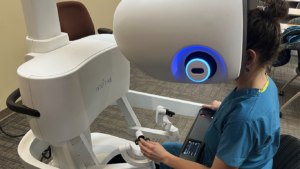When you’re touring a college, you can’t just go by how nice the campus looks, or how friendly the hosts are. Nor should you simply accept the sales pitch from the most important employee at the school, your guide. Instead, you should be asking questions to determine whether or not the college is a fit for you and your long-term goals. Here are 6 questions you should be asking on your next college visit.
What are the Living Arrangements?
Not all schools have the same rules. Some schools require freshmen to live on campus unless they live at home. Then there is the wide range of living arrangements themselves. One school may have basic dorms, while others let you share an upscale apartment on campus with a couple of other students. Another factor to consider is your preferred lifestyle. Do you want to live in housing with people studying the same thing you are? And what are the curfews? These are all questions you’ll need to address to see if the campus atmosphere will fit your preferences and be conducive to a good learning experience.
What Does the College Look for in Potential Students?
You’ll probably get a more specific answer from your guides than you would from the admissions office. You can also learn what students think the ideal student is like. It is up to you to determine if you’re a cultural fit. Ask multiple people what they think separates students at this campus from its local rivals and this could give you a better idea of whether you’ll be able to fit in.
What are Some of the Perks that You Offer?
Ask about the perks that the college offers. Chances are you’re going to need a laptop for college. In some cases, you may be able to get a laptop provided by college administrators simply for enrolling. If the tuition provided by two schools is the same, then colleges that provide laptops to all students are a better deal. A no cost laptop for college may be something you can continue to use after graduation as well.
An on-campus gym could save you money if you currently have a gym membership. A strong career services department could help you prepare for a job after graduation or aid you in finding internships and part-time work while attending school. The school that offers lifetime career counseling is clearly better than one that doesn’t, especially if they have a track record of helping graduates find good paying jobs in their field.
What are the Classes for Freshmen Like?
One issue many freshmen face is large classes of first year courses. Some students may be fine being one in several hundred in a lecture hall, but others know that they’d do better in smaller classes. Another issue is the use of teaching assistants instead of professors. Teaching assistants may be closer in age and more available to students, but a professor has a deeper knowledge of the subject. Who is teaching the freshman courses, and who would you rather be taught by?
Furthermore, you should ask about student retention and graduation rates. How many freshmen make it to their sophomore year instead of dropping out? What percentage graduate? If there’s a high drop-out rate, the school probably isn’t right for you.
What Would You Change About this School?
Of course, your escorts will do everything in their power to show the best side of the school as possible. This is a chance for them to discuss things that could be better. The answers could range from the secondary costs to public safety. Take the time to follow up on their answers. You’re the one making the financial commitment to attend, and you need to know that the school is right for you.
You should also take the time to ask them and other students what they like the most about the school. Some may mention the school spirit. Others might talk about the installations and support. Or others may talk how great the teachers are. This will give you a better idea of what the school is all about and whether it fits what you’re looking for.
What are the Options for Food?
While the local restaurants are nice to know about, the students should focus on the meal plans and on-campus dining options that fit within their budget. What are the price tags for their various meal plans? If you have dietary restrictions, find out if they have a decent range of options that suit you. Ask about the schedule for the dining hall, though this doesn’t matter as much if your dorm or apartment has a kitchen.
Asking these questions can help you weed out schools that aren’t a fit for you. Once you’ve narrowed down your options, the questions might actually be the final deciding factor on which college you’re going to eventually choose, so don’t take these lightly.



